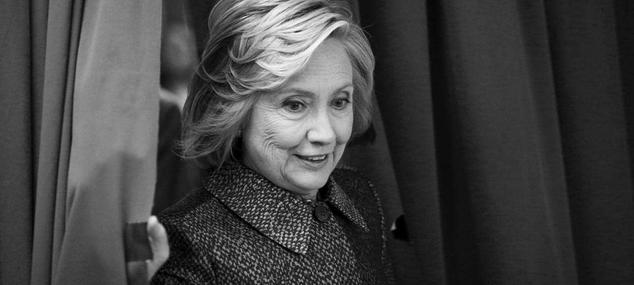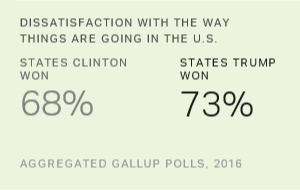Hillary Clinton and her strategy team appear to want to make her quest for the Democratic presidential nomination seem like hard work with nothing taken for granted. As Clinton said at the end of the video posted Sunday announcing her candidacy: "I want to earn your vote." This "no coronation" approach appears to fit with the feelings of rank-and-file Democrats across the country. The majority of Democrats want her to get the nomination, even more think she will, in fact, be the Democratic nominee, but a majority say that the party would be better off if she has competition and doesn't just glide to the nomination as a pre-ordained fact of life.
News reports certainly made it clear that Clinton and her strategists this time around do not want the process to start out seeming like her winning the nomination is inevitable. Hence her relatively low-key announcement carried via social media, rather than a dramatic live speech before a friendly audience as we recently saw with Ted Cruz and Rand Paul when they made their announcement speeches.
As my colleague Lydia Saad pointed out in her recent review of new data on Clinton's run for the presidency, the majority of Democrats say it would be better for the Democratic Party to have a number of strong candidates competing for the nomination this year rather than just one single candidate emerge earlier as the front-runner. Specifically, 54% of Democrats say it's better to have a number of strong candidates competing, versus 40% who say it's better to have a single candidate emerge early. We asked exactly the same question back in 1999, when Al Gore, then the sitting vice president, was gearing up for his run for the 2000 presidential election. At that point, Democrats also tilted toward Gore's having some competition, although slightly fewer felt that way then that do now. In the end, I'm not sure if Gore was "coronated" in 2000, but most high profile fellow Democrats decided not to run against him, leaving former New Jersey senator and NBA basketball player Bill Bradley as his only significant primary opponent. Even Bradley's challenge didn't last too long. Gore went on to beat Bradley handily in every caucus and primary until Bradley withdrew in March of 2000, leaving Gore with clear sailing to the nomination.
It's not clear if Clinton has the numbers to claim an inevitable path to coronation, even if her strategists had decided that positioning her that way was the better way to go. Our data show that 57% of Democrats would like to see her win their party's nomination, but that leaves 38% who say they would prefer that someone else get the nomination. That's a clear majority in her favor, but not what I would call a supermajority. Plus, as noted above, some of these people who want her to get the nomination would still like to see some competition.
Who might those competitors be? Three Democrats have made noises about competing against her -- former Maryland Gov. Martin O'Malley, former Virginia Sen. Jim Webb, and current Vermont Sen. Bernie Sanders. All three are relatively unknown to Democrats on a national level at this point.
Hillary Clinton has been in the nation's public eye for 23 years -- ever since she emerged from Arkansas state politics as the wife of a contender for the Democratic presidential nomination. She has stayed front and center since 1992 -- through her time as first lady, U.S. senator, presidential candidate, secretary of state, and now presidential contender all over again. Her name identification among Democrats is near universal today -- 93% of Democrats (including Democratic leaners) have an opinion of Clinton, and most of the rest say they recognize her but just don't have an opinion. By contrast, only 21% of Democrats know enough about O'Malley to have an opinion, only 25% have an opinion about Webb, and 29% have an opinion of Sanders. Massachusetts Sen. Elizabeth Warren is often mentioned as a desirable competitor to Hillary Clinton, and she does have somewhat higher name identification than these others, with 46% of Democrats having an opinion of her. But Warren adamantly denies that she is going to run. One other possible Democratic candidate is Vice President Joe Biden, who made his first foray into running for president over a quarter century ago. Biden is much better known than other possible contenders except Clinton; 81% of Democrats have an opinion. It's not highly likely he would jump in to the race, unless his friend Clinton really appears to stumble. Biden was born in 1942 and would turn 75 in his first year as president were he to run and be elected.
Still, other relatively unknown candidates have surfaced in past elections seeking their party's nomination, so it is not outside the realm of possibility that Clinton will have some competition. But few professional observers believe that Clinton won't get her party's nomination. As Politico put it: "Democratic insiders see little hope for Clinton's opponents, whoever they turn out to be."
And more importantly, most rank-and-file Democrats believe that she will be delivering their party's acceptance speech next July at the Democratic National Convention in Philadelphia. Sixty-six percent of Democrats in our recent survey said that "just your best guess," Hillary Clinton will win the Democratic nomination for president in 2016.
So Clinton's strategy team's decision to present her announcement in such a low-key manner and make it appear that she is working hard to gain the respect and votes of her fellow Democrats (and eventually all voters) appears to fit with the attitudes of rank-and-file Democrats. Most think she will get their party's nomination, but given that the majority would also like to see strong competitors emerge between now and the convention, her appearing to have to work hard for the nomination makes sense as the positioning for her campaign. Plus, given that almost four in 10 Democrats would like to see someone else win, she actually does have some work to do to shore up her support.

